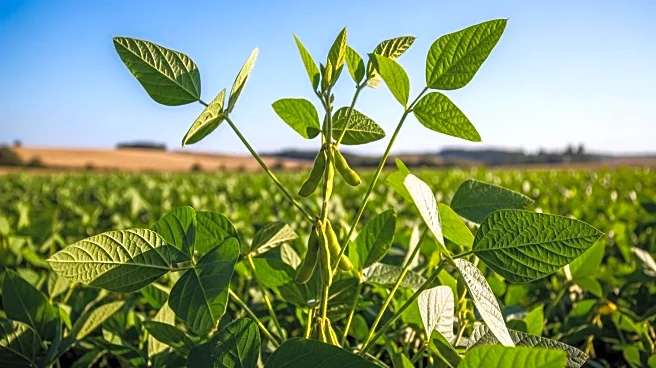What is the story about?
What's Happening?
Soybean meal is a critical component in animal feed, particularly for pigs and poultry, due to its high protein content. The production of soybean meal involves crushing whole soybeans to extract both meal and oil. In the United States, soybean production is a major agricultural activity, often competing with corn for the most planted crop. The U.S. Soy Sustainability Assurance Protocol ensures that soybean production adheres to sustainable practices, reducing land, water, and energy use, as well as greenhouse gas emissions. Globally, Brazil leads in soybean production and exports, while China is the largest importer of soybeans, supporting its extensive crushing industry.
Why It's Important?
The sustainability of soybean production is crucial for both environmental and economic reasons. As a key input in animal feed, soybean meal supports the meat production industry, which is a significant part of the global food supply chain. Sustainable practices in soybean farming can lead to reduced environmental impact, aligning with global efforts to combat climate change. The dynamics of soybean production and trade also have implications for international relations and economic policies, particularly between major producers like the U.S., Brazil, and China.

















